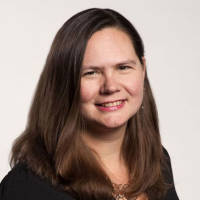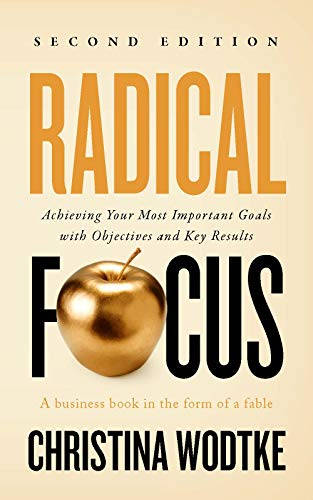A newsletter that started as a personal learning and getting-in-touch project by Ivan Krnic grew into a sociotechnical newsletter covering topics of technical excellence, organizational improvements, and productivity.
Empowered teams
Autonomous, empowered and self-organized teams are the common characteristic of every successful customer-oriented company. Self-organized teams enable decentralized work management, elimination of bottlenecks, increased efficiency, and better knowledge sharing. Getting to self-organization is not easy. Our journey in this direction started in 2010. Although I feel we’re still not completely there, I wanted to share our experience so far.
Since 2010, we have tried several models and tuned them along the way. The latest model that works for us is following:
In each team, we have two persons with the role of team leaders. They are co-pilots and they navigate the team together. We choose them very carefully and deliberately. There needs to be chemistry in their relationship, like Maverick and Goose, Thelma and Louise, Mulder and Scully. We found it crucial for a team leader to have a peer in the team with whom they can validate their view of the situation, test assumptions, and that acts as a mirror for their thinking and their actions.

Because of the way we choose them, we have full trust in them. Together we define team goals and outcomes. After that, nobody external to the team is messing with the way the team works internally.
Team leaders are not left alone, we provide full technical and organizational support. We have regular check-ins where two team leaders sit with the director of engineering and HR manager to discuss current challenges and share team successes. This “team of four” is perfectly capable of solving or at least escalating problems to the right address in the company.
Furthermore, we have established a Community of Practice for team leaders where we share experiences across all teams. It’s always useful for team leaders to see that others have similar challenges and to hear their experiences.
Finally, we have established regular 1-on-1 check-ins with team leaders. While all mechanisms mentioned so far were targeted at the team level, 1-on-1 check-ins help us move to the individual level and address personal challenges that team leaders face as well as celebrate their successes and work together on their personal growth.
Just like the Spotify model, this is just a snapshot in time of our model that continuously evolves. It will be interesting to look back a year from now and see what has changed.
To hear more about empowered teams and OKRs, check out the new episode of the 0800-DEVOPS podcast with Christina Wodtke.
Interview of the Month

Christina Wodtke on empowered teams
Christina Wodtke worked in the product development space in companies such as Zynga, MySpace, LinkedIn, and Yahoo. She is a Stanford professor and author of several books, most notably The Team That Managed Itself and Radical Focus. Her experience in developing teams is precious – we talked about empowered teams, OKRs, and the 2nd edition of her bestseller Radical Focus.
The cognitive load is the resident evil in organizations today! It shreds our focus and slows down the flow of value. Fortunately, Team Topologies offers a recipe to overcome it by forming the right structure of teams and establishing the right team interactions, thus supporting DevOps way of working.
Download CROZ case study and check out how Team Topologies helped us achieve a better flow of value and keep technology in check.
Hand picked
In Leading a Self-Organizing Team Mike Cohn explains what it actually means that a team is self-organized and how leaders can use the CDE model (Containers, Differences, and Exchanges) that can help identify what changes in the team dynamics and work conditions are needed to improve its performance.
Evaluating what is missing in your team heavily depends on organizational structure as well as the type of work the team is doing. It is an understatement to say that teams, as well as people, are complex structures and that it’s not always possible to put their behaviors in a certain framework. Luckily today there are numerous theoretical approaches like Lencioni’s 5 dysfunctions of a team, T7, or Tuckman’s Team performance model – to detect what could be improved in team dynamics.
Conformism and fear of conflict are well known to prevent the team from reaching its full potential. This can go so far that all team members work against what they think is the right course of action. In what is called the Abilene paradox, participants are not subjected to some mind trickery but simply lack the ability to manage agreement. Beware of this “self-organizational” trap.
When we talk about internal platforms, we usually think of developers as their users. But a well-designed platform is not limited to helping only developers. Nicki Watt reminds us that Platform Engineering is a discipline that involves doing whatever it takes (both technical and non-technical) to build, maintain and provide a curated platform experience for the communities using it. Notice the plural – a well-designed platform can help other internal communities as well, such as data scientists, leadership, management, governance, and so on.
Technical people all over the world struggle daily to explain to the management why addressing technical debt is important. Good news: they can increase their chances by using the vocabulary that management understands. The Cost of Delay is a concept that can be used to translate technical debt into a familiar domain of cost making it easier to prioritize it against other business features. Jeff Palmer explains how to prioritize using Cost of Delay and throws in a couple of nice examples.
Read with us

Radical Focus SECOND EDITION: Achieving Your Most Important Goals with Objectives and Key Results
Many companies try OKRs – few of them succeed. Radical Focus is a great book demystifying OKRs. Written partly as a novel, partly as an OKR handbook, the book is an excellent resource on applying OKRs. What is more, the second edition is just out with additional chapters in the handbook part offering actionable advice for both start-ups and giant corporations!
Learn more about the second edition in our latest podcast episode with Christina Wodtke.
QED ideas
Quality in Enterprise Development (QED) is our annual conference and a platform where organizations share ideas and experiences on their journey to a better way of working.
John Cohn, IBM Fellow, was our keynote speaker in 2016. Five years ago we talked about cognitive computing, but also about change, innovation, inevitable failure, and how playing is crucial for unleashing our creativity.
Header photo by Anna Samoylova on Unsplash
Falls Sie Fragen haben, sind wir nur einen Klick entfernt.



